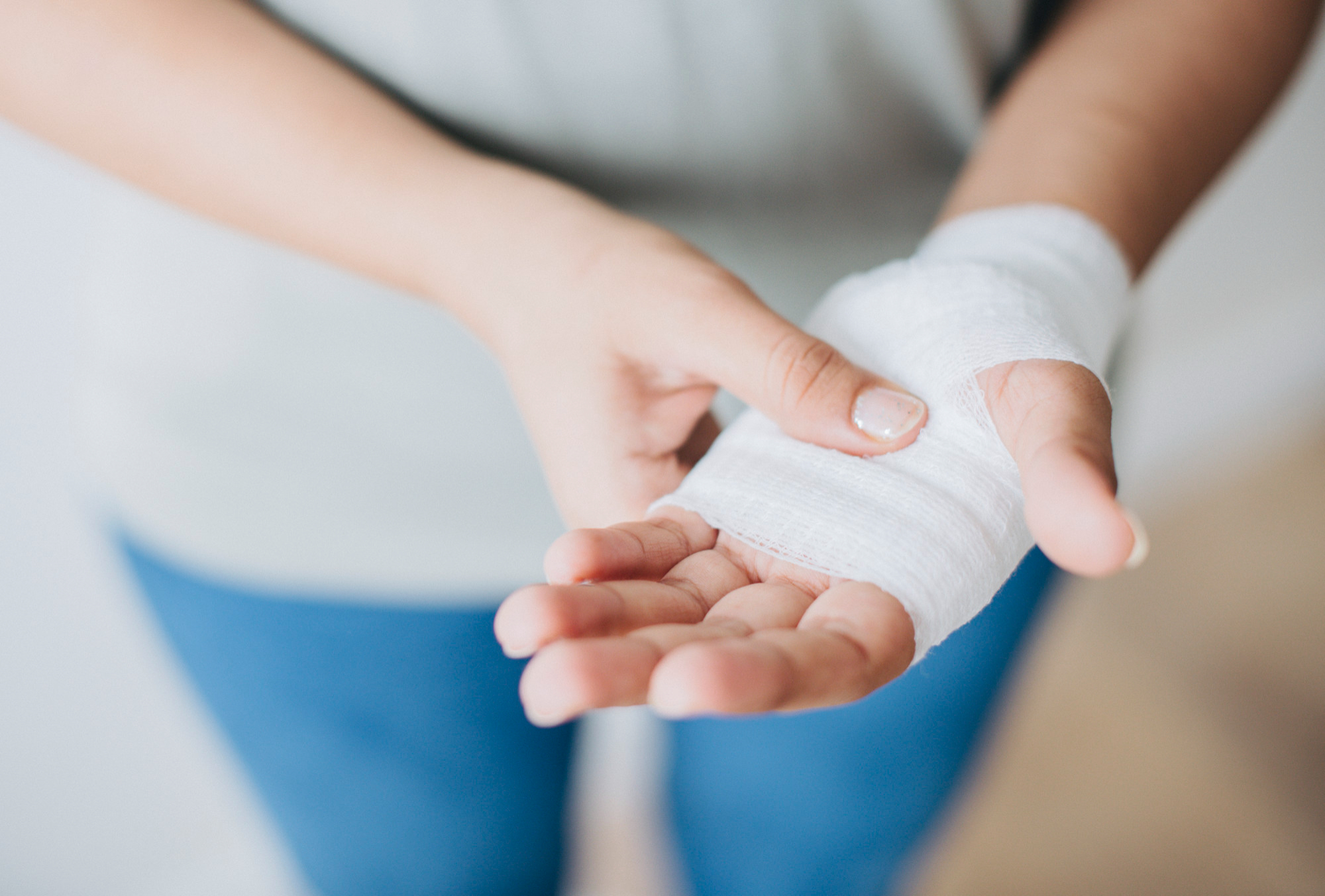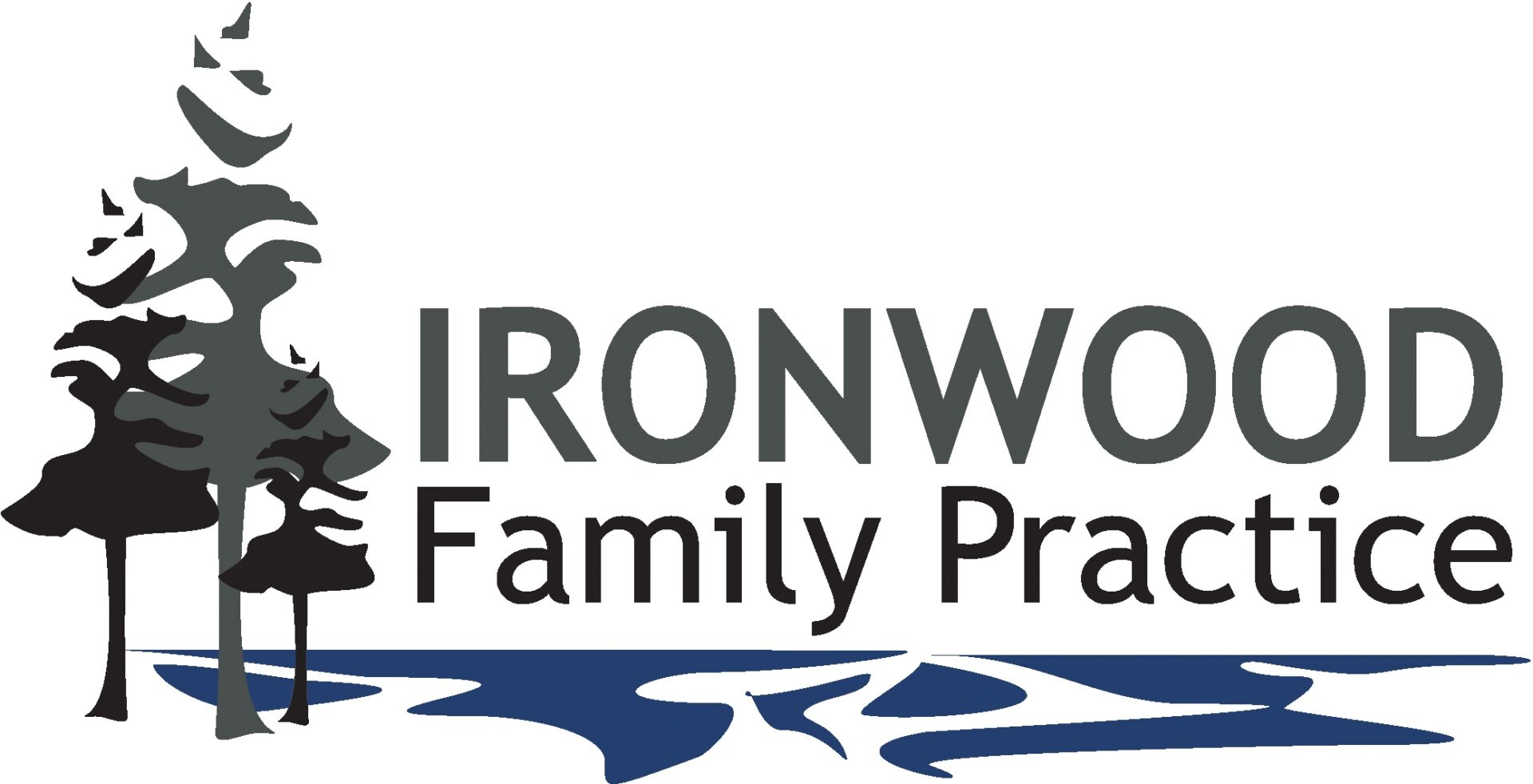
Tiny cuts can heal nicely on their own. But lacerations are deeper cuts that may require treatment with sutures. Ironwood Family Practice offers a variety of wound care services, including laceration repair and sutures, for adults, teens and children in North Idaho. Should you need sutures to close your wound, our providers can stitch you up in our office, saving you and your family time.
x
x
x
x
x
Ironwood Family Practice provides personalized healthcare to patients of all ages. Our approach involves educating and empowering our patients to take charge of their health and make informed decisions.
Where to get sutures for a laceration in Coeur d’Alene
As part of our commitment to families in the Inland Northwest, the providers at Ironwood Family Practice offer select same-day appointments for lacerations that require sutures. We can also remove sutures once your laceration heals. In addition, our team of physicians, nurse practitioners and physician assistants will show you how to care for your wound and guide you toward a safe recovery.
What to do if you suffer a cut
Cuts can happen anywhere, both at home or when you’re away. Whether you suffer a cut while cooking dinner, working in your woodshop or hiking on a trail, you should know how to respond.
The first step is to clean the wound gently with mild soap and water. Then, apply firm pressure with a clean cloth or gauze to stop the bleeding. If your cut is on your arm or leg, elevate the affected area while applying pressure. Doing so will direct blood flow away from the cut and encourage faster healing. Once bleeding has slowed or stopped, apply a bandage or dressing to the wound.
When to see a doctor for lacerations
If you suffer severe bleeding from a laceration, or if blood is spurting out of the wound, it’s an emergency. Call 911 immediately.
If your cut is caused by a foreign object, such as a piece of glass that’s embedded within the cut, do not try to remove the sharp object. Instead, go to an Emergency Room or see your family doctor to have the object removed and the cut treated.
A doctor’s visit is also necessary if:
- The cut doesn’t stop bleeding after 10 minutes of applying pressure
- A bandage or dressing isn’t stopping the bleeding
- Your cut is over a joint, such as your knee, elbow or knuckles
- You have a deeper cut that goes beneath the outer layer of the skin
- Your wound is jagged
- Your cut is the result of a bite from an animal or another person
- Your cut is in a sensitive area, such as your pelvic or pubic area
When to get sutures for a cut
Sutures, also called stitches, are threads sewn through the skin. They are an effective treatment for lacerations and deep cuts that will not heal on their own. In general, a deep cut longer than half an inch anywhere on your body may need sutures. So, too, will any facial laceration longer than a quarter-of-an-inch. If you can see fat, muscle or bone, sutures will be required as well.
If you think your cut may need sutures, you should see a healthcare professional as soon as possible. Ideally, lacerations should be closed with sutures within six hours to prevent infection. Lacerations on the face or scalp should be closed with sutures within 24 hours. Call us at 208-667-4557.
What happens during a family practice visit for sutures?
The family medicine experts at Ironwood Family Practice perform many procedures, including sutures, safely in our office in Coeur d’Alene. When you visit us with a laceration, we will clean the affected area and assess whether sutures or other treatments are needed.
Should your cut require sutures, we will give you a numbing agent or local anesthetic to make the experience as comfortable as possible. During a suture procedure, one of our providers will carefully align the edges of your wound, helping to promote your body’s natural healing process.
Sutures are proven to reduce scarring from lacerations, keep bad bacteria out of your wound, reduce the chance for infection and promote a faster recovery.
If your bite was caused by an animal or human bite, you may need a tetanus (TDaP) vaccination or booster. We can provide that vaccine as well.
How to care for sutures at home
In general, aim to keep your sutures clean and dry for the first 24 to 48 hours following your procedure. After that time, you can clean the wound with soap and water daily and apply a sterile bandage over the sutures. Wash very gently around the wound, and do not wash or rub the stitches directly. Also, do not dry off your stitches with a towel. Always wash your hands before and after cleaning your sutures.
In general, sutures are removed anywhere between four to 14 days after your procedure. Your healthcare provider will give you specific cleaning instructions and expectations for when you can get your sutures removed.
Watch for potential signs of infection
Check your wound regularly to ensure it’s healing properly. If you notice any of these signs of infection, call us at Ironwood Family Practice at 208-667-4557 right away:
- Additional redness, swelling or yellow pus
- Numbness or tingling around the wound
- Pain that won’t go away
- Increased tenderness around the wound
- Numbness or tingling near the wound site

Why choose Ironwood Family Practice for laceration care or sutures?
Cuts need prompt care. At Ironwood Family Practice in Coeur d’Alene, we offer select same-day appointments for minor injuries, including sprains, strains, fractures, cuts and lacerations. We will do our best to accommodate your schedule and get you or your family member the care for lacerations you deserve. In our practice, you’ll benefit from:
Premium, compassionate care for lacerations from doctors, nurse practitioners and physician assistants who regularly perform in-office procedures. We care for people of all ages, from small children to seniors, and use the latest methods to make you as comfortable as possible during a suture procedure.
A team devoted to your recovery. At Ironwood Family Practice, our patients receive care from a team of two health care providers, giving you increased availability with professionals who know you and treat you like family.
Step-by-step instructions. We believe in empowering our patients through education. If you need sutures, we’ll explain your after-care instructions in detail so you can have a safe and speedy recovery.
Frequently Asked Questions
Can I go to a daily doctor for sutures or do I need an ER?
The answer depends on your cut. Family doctors like the team at Ironwood Family Practice in Coeur d’Alene can treat many lacerations that require sutures. However, deep wounds with exposed bone, muscle or fat, cuts that cause severe or uncontrolled bleeding, or broken bones and other serious injuries may require Emergency Room care. Always call 911 in an emergency.
How long do sutures stay in?
The location and depth of a laceration are key factors in determining how long sutures will remain in place. For smaller cuts, sutures may be removed after four or five days. For larger cuts, sutures may stay in place for up to two weeks. Your care team at Ironwood Family Practice in Coeur d’Alene will give you an estimated timeframe after your suture procedure.
Are sutures painful?
Sutures are administered using a sharp needle. However, providers at Ironwood Family Practice in Coeur d’Alene will use a local anesthetic or numbing agent and make you as comfortable as possible. You may feel slight pressure but should not experience a lot of discomfort. If you have a cut that needs sutures, call us at 208-667-4557 to make an appointment.
